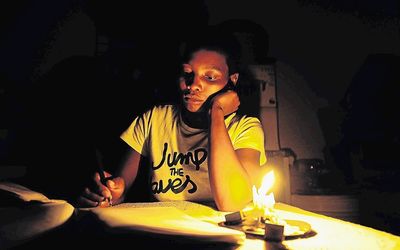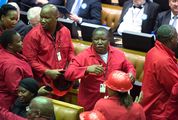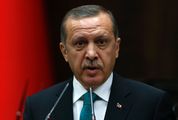JUST more than two years ago, my colleague and friend Prof Anton Fagan brought me a copy of The Life You Can Save by Peter Singer, wondering whether I’d be interested in it. I read it over a weekend, and was hooked by Singer’s arguments.
My reservations about making public the extent to which I contributed to "worthy causes", and about treating the symptoms of inequality and poverty, rather than the systems that produce and reproduce them, were overcome.
In mid-March 2014, we launched the Five Plus project (www.fiveplus. uct.ac.za), with almost 120 members already signed up in the preceding "silent phase", and with magnificent support nationally in the form of a full-page spread in Business Day. Rather unrealistically, we imagined that well-off South Africans would flock to sign up, given the power of the arguments and the astonishing (and growing) levels of inequality that pervade our society.
Spontaneous responses were negligible, and it took many hours and thousands of further e-mailed invitations from Anton to allow us to celebrate about 275 members by our first anniversary. Although the number remained small, we took comfort from the fact that most of those who had taken the pledge had increased the level of their annual giving to organisations tackling poverty in this country, and that it was likely that this translated into several millions of extra rand going to such organisations.
The period since March last year has been a very difficult one for us at UCT, as well as in the higher education sector generally. The issues raised took much of our energy and attention, so that substantial new efforts to recruit members to Five Plus took a back seat. At the same time, Anton dutifully contacted each member on the anniversary of their pledge, to invite them to renew their commitment for the ensuing year, as we had said that we would.
This has led to a decline in our numbers: some did not reply, despite repeated requests, others honestly declared their inability to give at the 5% level, and yet others merely withdrew.
Only about 40 people joined as new members, to offset the losses: today we stand at 250 members.
Yet, we all know that poverty and the wealth gap in this country are growing steadily, particularly as the result of economic decline and the drought. Racism, prejudice and the entrenchment of irrationality grow apace: we are not in a good state, with seriously deficient leadership on almost all fronts.
We all need a strong dose of encouragement, humility, critical introspection, and hope, it seems to me. This open letter seeks to spark such a response, sparked by the feedback from the NGO to which I give the greatest level of my pledged support.
...
I NEED to emphasise important aspects of the project: we do not check up on whether our members indeed comply with their pledge of donating at least 5% of their taxable income annually to organisations that seek to tackle poverty and its effects; we leave the choice of the beneficiaries of their philanthropy to the members; but in response to requests, we ask our members to let us know to which organisations they have given their support, and a list of such appears on our website.
The organisation profiled here is just one of about 100 such organisations that benefit from the donations of our members and that do incredibly valuable work in seeking to alleviate the effects of poverty in this country: it is not held out as preferred in some way.
The African Scholars Fund (ASF) in Cape Town was founded in the early 1970s as a means of making textbooks available to black school pupils: most of us will recall that government did not supply them free, as it did to white schools.
For the past 45 years, the ASF has been raising funds to grant about 2,200 bursaries annually to high school pupils who reach a reasonable minimum standard in at least English and maths, from grades 8 to 12, in the area covered by the old Cape Province, many of them in rural towns. The amount of the bursary is extremely modest: in 2015, it was R900, enough to cover the "school fee" payable even at nonfee-paying schools, and leaving money over for books, a tracksuit, stationery, and so on, at the pupil’s discretion.
For most such pupils, this is a substantial encouragement to study and succeed, and the fund’s staff frequently provide advice and encouragement. The matric success rate is high.
In December, I received a list of the 17 pupils who have benefited from my contributions in the past year: the fund allocates pupils to all donors, and reports to them on their academic progress. I was struck by a number of aspects of the mid-year reports of these children, most of whom were in Grade 11 last year;
• They achieved averages across all their subjects ranging between 53% and 78%, with the average across all 17 being about 65%;
• Five came from the Western Cape, the rest from the Eastern Cape province, several of them from deeply rural and impoverished schools;
• The typical family structure is an absent/unknown/deceased father (14 out of the 17, of whom four were dead), and an absent/ unemployed mother (12 out of the 17); and
• Almost every "family" depended almost totally on social service grants from the government (child support/disability/grandparents’ pension), seldom exceeding R1,500 per month, and mostly also supporting several siblings or other dependants.
...
YET, despite these appalling circumstances, the children showed determination and commitment to learn: several of them had written letters of appreciation to the fund that were passed on to me, as the nominal donor.
I recount these facts not to publicise my donation, nor to promote the fund. I do so because the above account demonstrates abundantly the effect that a relatively small monthly donation can have across a wide geographical area and among the very poorest in our society.
I am sure many of those reading this could tell similar, or even more striking stories: one thing we have learned as a result of starting this project is the remarkable level and diversity of philanthropy that exists in this country.
Yet, it is not remotely enough. The recent budget speech surprised many in not increasing personal income tax for those earning in the highest income brackets: this seems an ideal opportunity to suggest that, given the continually widening "wealth gap" in this country, and the real likelihood that the desperation of those who have nothing to lose will increasingly frequently express itself in violent action, the urgency of our call to well-off South Africans to join the Five Plus campaign has only strengthened in the two years since its launch.
Anton and I are totally committed to the long-term sustainability of this project, but we cannot allow it to stagnate and will continue to try to recruit new members. Once more, we invite you to take the pledge, to let others know about the project, and to encourage them to take the pledge.
The year ahead promises to be tougher for most of us than any since we attained constitutional democracy: it is precisely in such circumstances that our philanthropy will have an even more emphatic effect on those fellow citizens living daily in dire poverty.
• Hugh Corder is a professor of public law, University of Cape Town

A Grade 12 learner uses a candle to study. The determination of very poor kids to uplift themselves inspires the writer, and organisations such as Five Plus provide the means through donor support. Picture: SOWETAN
JUST more than two years ago, my colleague and friend Prof Anton Fagan brought me a copy of The Life You Can Save by Peter Singer, wondering whether I’d be interested in it. I read it over a weekend, and was hooked by Singer’s arguments.
My reservations about making public the extent to which I contributed to "worthy causes", and about treating the symptoms of inequality and poverty, rather than the systems that produce and reproduce them, were overcome.
In mid-March 2014, we launched the Five Plus project (www.fiveplus. uct.ac.za), with almost 120 members already signed up in the preceding "silent phase", and with magnificent support nationally in the form of a full-page spread in Business Day. Rather unrealistically, we imagined that well-off South Africans would flock to sign up, given the power of the arguments and the astonishing (and growing) levels of inequality that pervade our society.
Spontaneous responses were negligible, and it took many hours and thousands of further e-mailed invitations from Anton to allow us to celebrate about 275 members by our first anniversary. Although the number remained small, we took comfort from the fact that most of those who had taken the pledge had increased the level of their annual giving to organisations tackling poverty in this country, and that it was likely that this translated into several millions of extra rand going to such organisations.
The period since March last year has been a very difficult one for us at UCT, as well as in the higher education sector generally. The issues raised took much of our energy and attention, so that substantial new efforts to recruit members to Five Plus took a back seat. At the same time, Anton dutifully contacted each member on the anniversary of their pledge, to invite them to renew their commitment for the ensuing year, as we had said that we would.
This has led to a decline in our numbers: some did not reply, despite repeated requests, others honestly declared their inability to give at the 5% level, and yet others merely withdrew.
Only about 40 people joined as new members, to offset the losses: today we stand at 250 members.
Yet, we all know that poverty and the wealth gap in this country are growing steadily, particularly as the result of economic decline and the drought. Racism, prejudice and the entrenchment of irrationality grow apace: we are not in a good state, with seriously deficient leadership on almost all fronts.
We all need a strong dose of encouragement, humility, critical introspection, and hope, it seems to me. This open letter seeks to spark such a response, sparked by the feedback from the NGO to which I give the greatest level of my pledged support.
...
I NEED to emphasise important aspects of the project: we do not check up on whether our members indeed comply with their pledge of donating at least 5% of their taxable income annually to organisations that seek to tackle poverty and its effects; we leave the choice of the beneficiaries of their philanthropy to the members; but in response to requests, we ask our members to let us know to which organisations they have given their support, and a list of such appears on our website.
The organisation profiled here is just one of about 100 such organisations that benefit from the donations of our members and that do incredibly valuable work in seeking to alleviate the effects of poverty in this country: it is not held out as preferred in some way.
The African Scholars Fund (ASF) in Cape Town was founded in the early 1970s as a means of making textbooks available to black school pupils: most of us will recall that government did not supply them free, as it did to white schools.
For the past 45 years, the ASF has been raising funds to grant about 2,200 bursaries annually to high school pupils who reach a reasonable minimum standard in at least English and maths, from grades 8 to 12, in the area covered by the old Cape Province, many of them in rural towns. The amount of the bursary is extremely modest: in 2015, it was R900, enough to cover the "school fee" payable even at nonfee-paying schools, and leaving money over for books, a tracksuit, stationery, and so on, at the pupil’s discretion.
For most such pupils, this is a substantial encouragement to study and succeed, and the fund’s staff frequently provide advice and encouragement. The matric success rate is high.
In December, I received a list of the 17 pupils who have benefited from my contributions in the past year: the fund allocates pupils to all donors, and reports to them on their academic progress. I was struck by a number of aspects of the mid-year reports of these children, most of whom were in Grade 11 last year;
• They achieved averages across all their subjects ranging between 53% and 78%, with the average across all 17 being about 65%;
• Five came from the Western Cape, the rest from the Eastern Cape province, several of them from deeply rural and impoverished schools;
• The typical family structure is an absent/unknown/deceased father (14 out of the 17, of whom four were dead), and an absent/ unemployed mother (12 out of the 17); and
• Almost every "family" depended almost totally on social service grants from the government (child support/disability/grandparents’ pension), seldom exceeding R1,500 per month, and mostly also supporting several siblings or other dependants.
...
YET, despite these appalling circumstances, the children showed determination and commitment to learn: several of them had written letters of appreciation to the fund that were passed on to me, as the nominal donor.
I recount these facts not to publicise my donation, nor to promote the fund. I do so because the above account demonstrates abundantly the effect that a relatively small monthly donation can have across a wide geographical area and among the very poorest in our society.
I am sure many of those reading this could tell similar, or even more striking stories: one thing we have learned as a result of starting this project is the remarkable level and diversity of philanthropy that exists in this country.
Yet, it is not remotely enough. The recent budget speech surprised many in not increasing personal income tax for those earning in the highest income brackets: this seems an ideal opportunity to suggest that, given the continually widening "wealth gap" in this country, and the real likelihood that the desperation of those who have nothing to lose will increasingly frequently express itself in violent action, the urgency of our call to well-off South Africans to join the Five Plus campaign has only strengthened in the two years since its launch.
Anton and I are totally committed to the long-term sustainability of this project, but we cannot allow it to stagnate and will continue to try to recruit new members. Once more, we invite you to take the pledge, to let others know about the project, and to encourage them to take the pledge.
The year ahead promises to be tougher for most of us than any since we attained constitutional democracy: it is precisely in such circumstances that our philanthropy will have an even more emphatic effect on those fellow citizens living daily in dire poverty.
• Hugh Corder is a professor of public law, University of Cape Town
























Change: 1.19%
Change: 1.36%
Change: 2.19%
Change: 1.49%
Change: -0.77%
Data supplied by Profile Data
Change: -0.19%
Change: 0.69%
Change: 1.19%
Change: 0.00%
Change: 0.44%
Data supplied by Profile Data
Change: 0.62%
Change: 0.61%
Change: 0.23%
Change: 0.52%
Change: 0.12%
Data supplied by Profile Data
Change: -0.21%
Change: -1.22%
Change: -0.69%
Change: -0.51%
Change: 0.07%
Data supplied by Profile Data